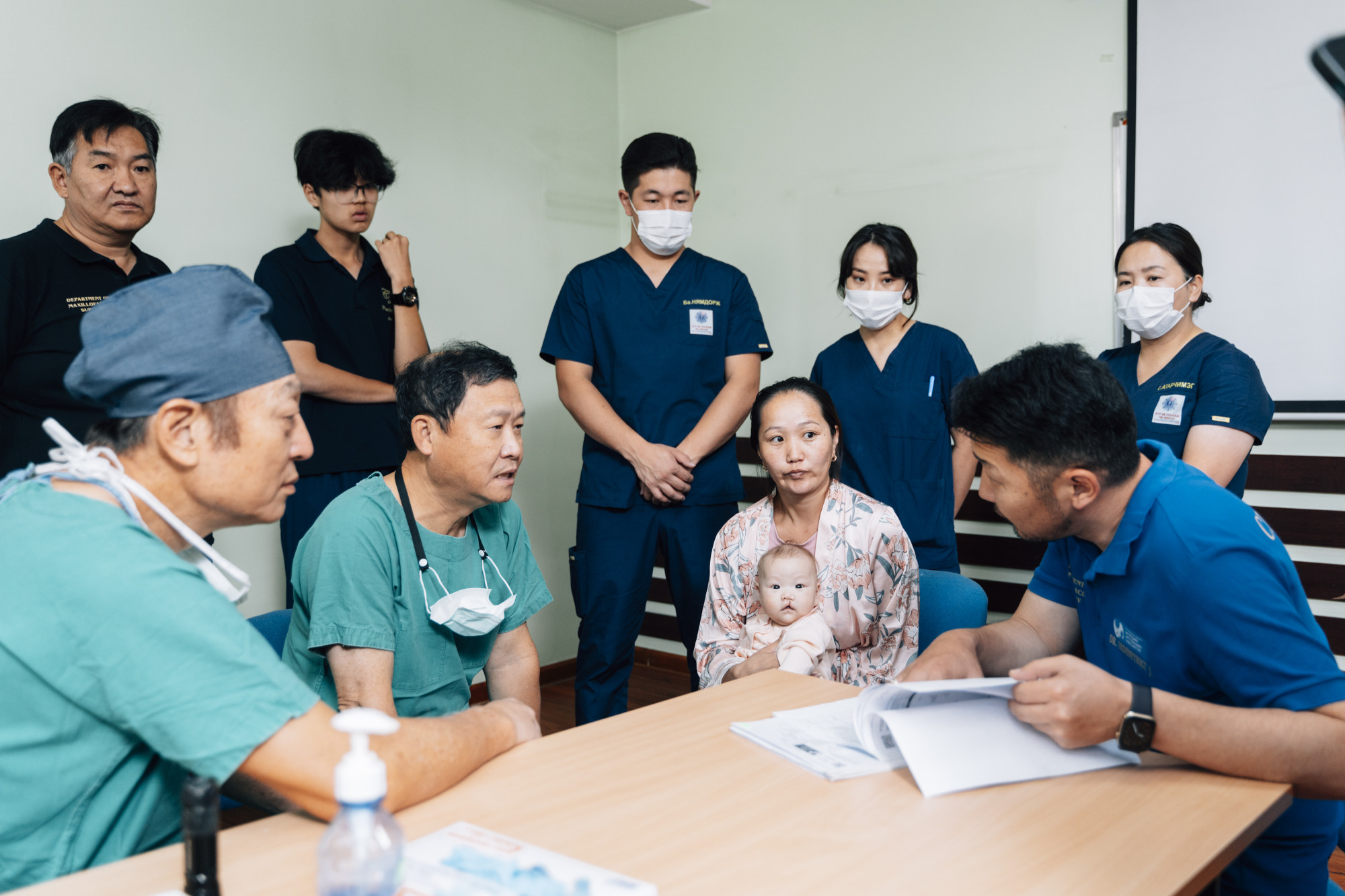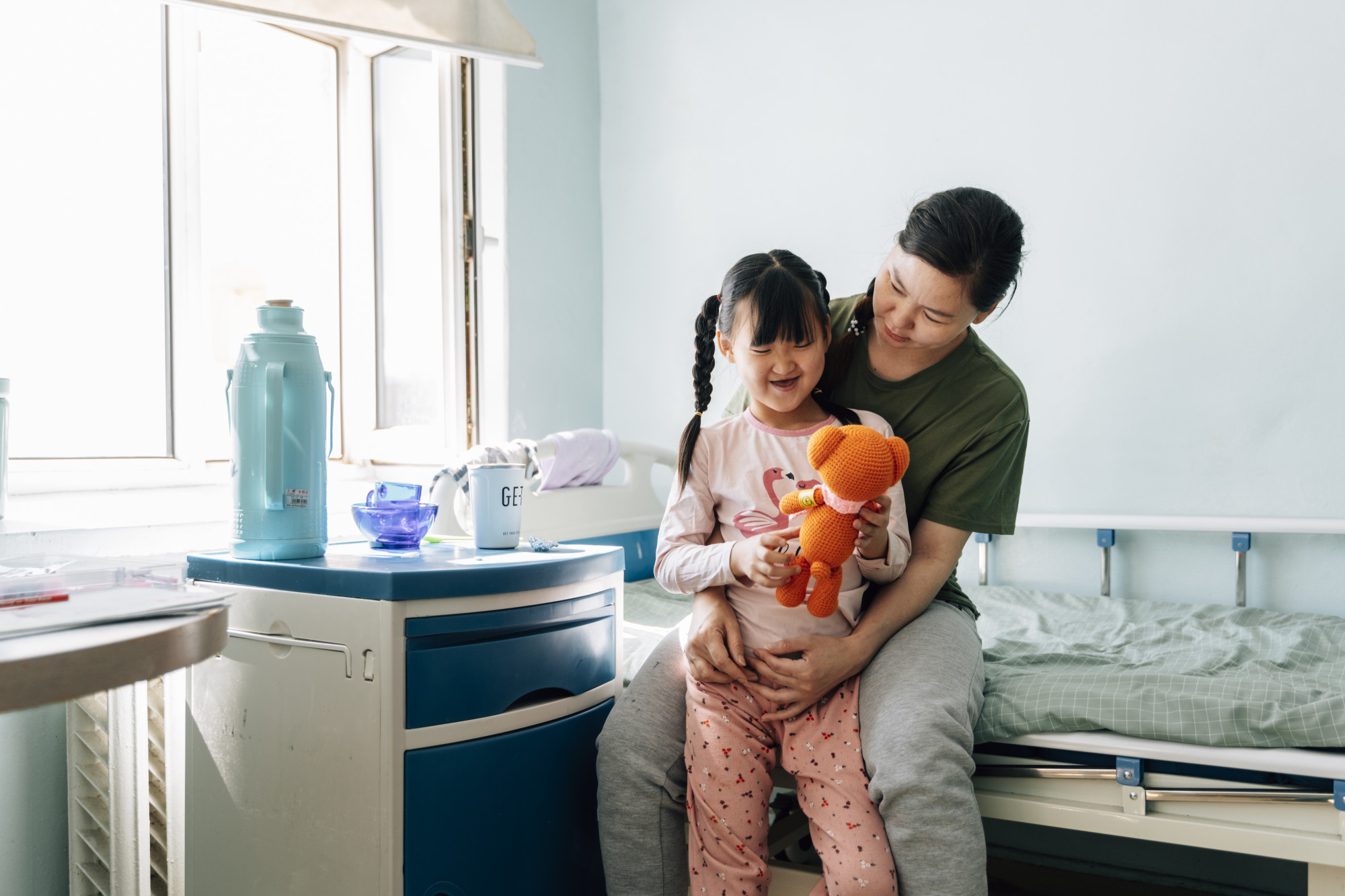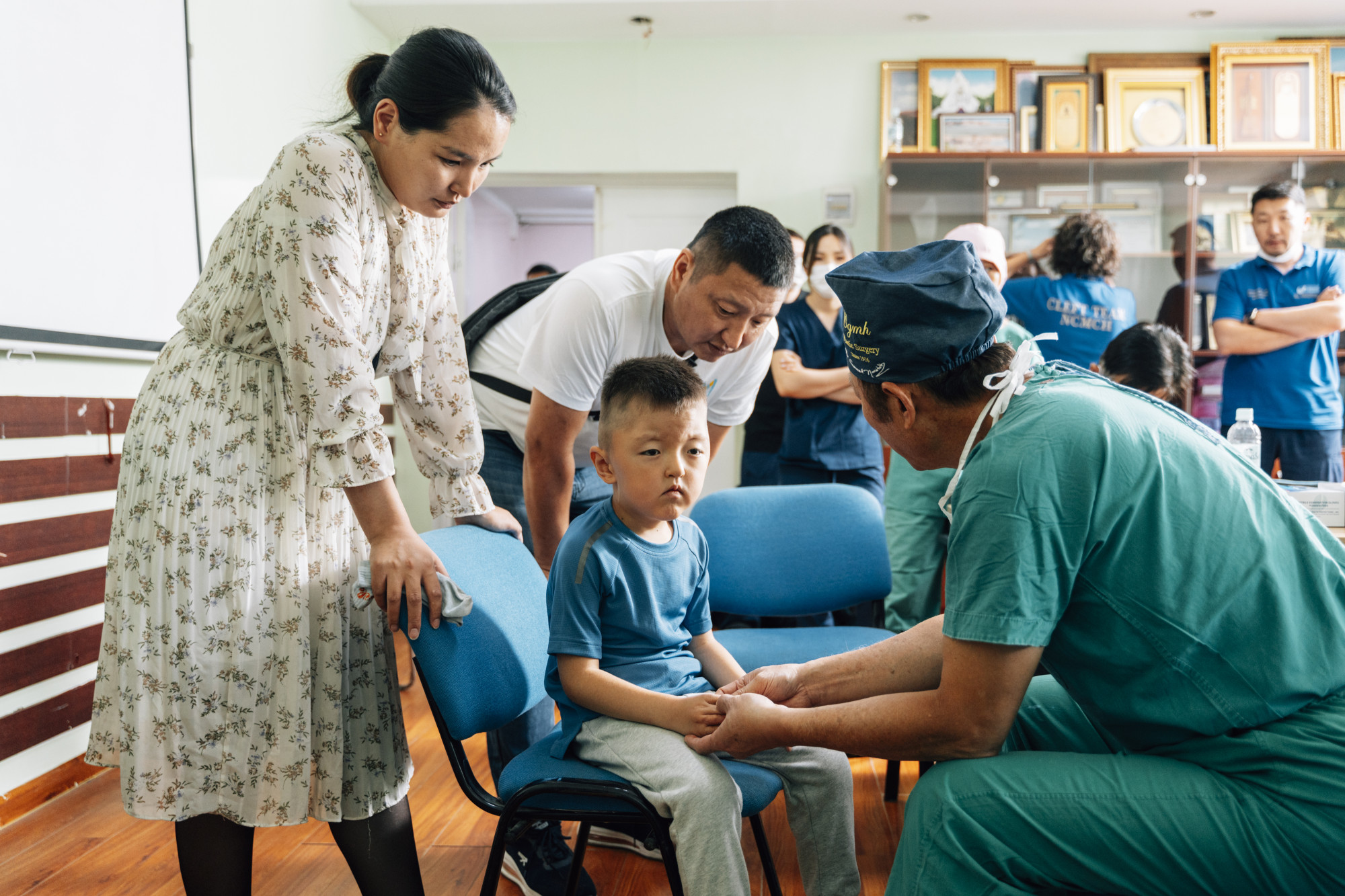Healing Smiles and Hearts After a Four-Year Pause
On August 27, 2023, the “Love Makes Whole” medical mission team traveled 3,417 kilometers from Taiwan to Mongolia to provide long-awaited free cleft care at the National Center for Maternal and Child Health of Mongolia (NCMCH) in Ulaanbaatar.
This marked the team’s 11th mission to Mongolia since its first visit in 2010. Over the past decade, the team has performed free reconstructive surgeries for nearly 250 Mongolian children with cleft conditions.

The COVID-19 pandemic halted missions for nearly four years. In partnership with Chang Gung Medical Team and NCMCH, this year’s team successfully completed 20 surgeries, including 19 cleft procedures and one burn reconstruction.
Among the many patients was three-month-old Tamir Yanjinlkham, born with cleft lip. Her mother only learned of her daughter’s condition after birth. Making matters worse, relatives scolded her cruelly: “Don’t take this scary child outside—it’s too shameful.”
But Tamir’s mother remained determined. Upon learning from a local doctor that a medical team from Taiwan was coming to offer free surgeries, she traveled six hours from a rural village to Ulaanbaatar, desperate to find care for her daughter.

After surgery, Tamir’s mother expressed her gratitude with tears in her eyes: “I’m so proud to entrust my daughter to the Taiwanese medical team. Thank you, doctor. Thank you, the NCF. My daughter is now our beautiful little princess.”
Tamir’s repaired lip was more than a medical success—it was a healing moment for a mother’s broken heart.
Each year, approximately 100 children are born with cleft conditions in Mongolia. To address this need, NCF and NCMCH began their partnership in 2009, initiating a long-term collaboration that included training Mongolian seed doctors in Taiwan and conducting joint surgical missions.

Today, NCMCH has established a comprehensive craniofacial care team, with departments in plastic surgery, dentistry, speech therapy, and anesthesiology. This achievement is a testament to NCF’s long-standing international strategy, built on three core principles: Medical Missions, Training Local Professionals and Establishing Local Craniofacial Teams.

This marked the team’s 11th mission to Mongolia since its first visit in 2010. Over the past decade, the team has performed free reconstructive surgeries for nearly 250 Mongolian children with cleft conditions.

The COVID-19 pandemic halted missions for nearly four years. In partnership with Chang Gung Medical Team and NCMCH, this year’s team successfully completed 20 surgeries, including 19 cleft procedures and one burn reconstruction.
Among the many patients was three-month-old Tamir Yanjinlkham, born with cleft lip. Her mother only learned of her daughter’s condition after birth. Making matters worse, relatives scolded her cruelly: “Don’t take this scary child outside—it’s too shameful.”
But Tamir’s mother remained determined. Upon learning from a local doctor that a medical team from Taiwan was coming to offer free surgeries, she traveled six hours from a rural village to Ulaanbaatar, desperate to find care for her daughter.

After surgery, Tamir’s mother expressed her gratitude with tears in her eyes: “I’m so proud to entrust my daughter to the Taiwanese medical team. Thank you, doctor. Thank you, the NCF. My daughter is now our beautiful little princess.”
Tamir’s repaired lip was more than a medical success—it was a healing moment for a mother’s broken heart.
Each year, approximately 100 children are born with cleft conditions in Mongolia. To address this need, NCF and NCMCH began their partnership in 2009, initiating a long-term collaboration that included training Mongolian seed doctors in Taiwan and conducting joint surgical missions.

Today, NCMCH has established a comprehensive craniofacial care team, with departments in plastic surgery, dentistry, speech therapy, and anesthesiology. This achievement is a testament to NCF’s long-standing international strategy, built on three core principles: Medical Missions, Training Local Professionals and Establishing Local Craniofacial Teams.
